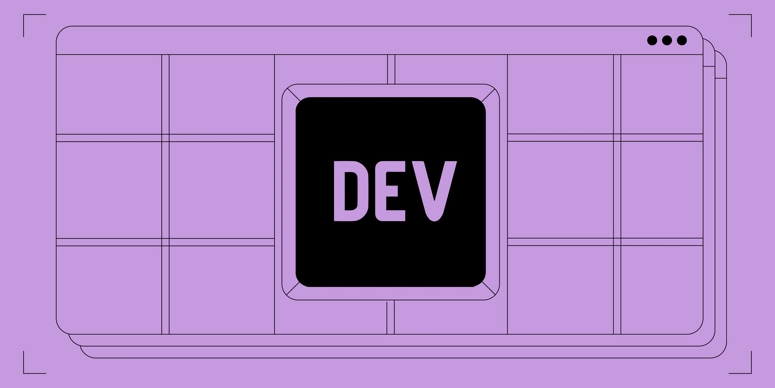Introduction to a new Self hosted PAAS
DFlow: The Developer-First Self-Hosted PaaS As developers look for more control over their infrastructure, the demand for a self-hosted PaaS solution that's both powerful and easy to use has never been higher. Most modern PaaS platforms focus on abstracting infrastructure—but at the cost of flexibility, pricing, and ownership. Enter DFlow — a developer-first, self-hosted Platform-as-a-Service that gives you full control over your deployments, infrastructure, and scaling — without the need for Kubernetes, Swarm, or bloated orchestration tools. What is DFlow? At its core, DFlow is a UI-powered platform that connects directly to your servers via SSH and configures them with a production-ready stack powered by Dokku, node-ssh, PayloadCMS and Railpack. It transforms your VPS into a smart, scalable PaaS with just a few clicks. But DFlow goes far beyond that. It’s not just a UI wrapper for Dokku. DFlow brings its own opinionated architecture, offering: A modern dashboard for managing apps, deployments, logs, and resources Free domain provisioning via nip.io and automatic Let's Encrypt SSL Out-of-the-box PostgreSQL, Redis, and other DB plugins One-click app scaling (with plans for full autoscaling support) Real-time monitoring powered by Netdata A template creation system for turning any app into a reusable deployment recipe Server provisioning directly from cloud providers like AWS How is DFlow Different? Unlike traditional PaaS tools, DFlow is intentionally simple, transparent, and modular. Here’s what makes it stand out: 1. Smart Server Setup (via SSH) DFlow connects to any fresh VPS using SSH, installs Dokku and Netdata, and configures the entire deployment stack. It handles everything from DNS to SSL, proxy setup, databases, and more—turning any server into a self-hosted Heroku alternative. 2. Not Herokuish—It’s Railpack First While Dokku supports Heroku buildpacks, DFlow favors a Railpack-based approach, giving developers more control and flexibility. This avoids the limitations of the Herokuish ecosystem while still providing Docker-powered app builds under the hood. 3. No Heavy Orchestration DFlow avoids Kubernetes and Docker Swarm on purpose. Instead of complex orchestration, it focuses on a horizontal scaling strategy where new cloud servers (e.g., AWS EC2) are spun up based on load or custom rules you define. These new instances are then auto-configured with Dokku and immediately available in the DFlow dashboard. 4. Admin Panel Decoupled from Your Servers DFlow’s admin panel is not installed on your production servers. This is by design. Build processes can be memory and CPU intensive—and we believe your UI shouldn't slow down just because a deployment is running. You can host the DFlow admin on platforms like Railway with a one-click deploy button. 5. Template Creation UI Soon, DFlow will ship with a template builder, allowing you to package your own apps (or open source projects) into reusable templates. This means you can standardize how projects are deployed across teams, clients, or products—all visually and without writing complex scripts. DFlow Architecture Overview Here’s how it all comes together:

DFlow: The Developer-First Self-Hosted PaaS
As developers look for more control over their infrastructure, the demand for a self-hosted PaaS solution that's both powerful and easy to use has never been higher. Most modern PaaS platforms focus on abstracting infrastructure—but at the cost of flexibility, pricing, and ownership.
Enter DFlow — a developer-first, self-hosted Platform-as-a-Service that gives you full control over your deployments, infrastructure, and scaling — without the need for Kubernetes, Swarm, or bloated orchestration tools.
What is DFlow?
At its core, DFlow is a UI-powered platform that connects directly to your servers via SSH and configures them with a production-ready stack powered by Dokku, node-ssh, PayloadCMS and Railpack. It transforms your VPS into a smart, scalable PaaS with just a few clicks.
But DFlow goes far beyond that.
It’s not just a UI wrapper for Dokku. DFlow brings its own opinionated architecture, offering:
- A modern dashboard for managing apps, deployments, logs, and resources
- Free domain provisioning via nip.io and automatic Let's Encrypt SSL
- Out-of-the-box PostgreSQL, Redis, and other DB plugins
- One-click app scaling (with plans for full autoscaling support)
- Real-time monitoring powered by Netdata
- A template creation system for turning any app into a reusable deployment recipe
- Server provisioning directly from cloud providers like AWS
How is DFlow Different?
Unlike traditional PaaS tools, DFlow is intentionally simple, transparent, and modular.
Here’s what makes it stand out:
1. Smart Server Setup (via SSH)
DFlow connects to any fresh VPS using SSH, installs Dokku and Netdata, and configures the entire deployment stack. It handles everything from DNS to SSL, proxy setup, databases, and more—turning any server into a self-hosted Heroku alternative.
2. Not Herokuish—It’s Railpack First
While Dokku supports Heroku buildpacks, DFlow favors a Railpack-based approach, giving developers more control and flexibility. This avoids the limitations of the Herokuish ecosystem while still providing Docker-powered app builds under the hood.
3. No Heavy Orchestration
DFlow avoids Kubernetes and Docker Swarm on purpose. Instead of complex orchestration, it focuses on a horizontal scaling strategy where new cloud servers (e.g., AWS EC2) are spun up based on load or custom rules you define. These new instances are then auto-configured with Dokku and immediately available in the DFlow dashboard.
4. Admin Panel Decoupled from Your Servers
DFlow’s admin panel is not installed on your production servers. This is by design. Build processes can be memory and CPU intensive—and we believe your UI shouldn't slow down just because a deployment is running. You can host the DFlow admin on platforms like Railway with a one-click deploy button.
5. Template Creation UI
Soon, DFlow will ship with a template builder, allowing you to package your own apps (or open source projects) into reusable templates. This means you can standardize how projects are deployed across teams, clients, or products—all visually and without writing complex scripts.
DFlow Architecture Overview
Here’s how it all comes together:




























![[Webinar] AI Is Already Inside Your SaaS Stack — Learn How to Prevent the Next Silent Breach](https://blogger.googleusercontent.com/img/b/R29vZ2xl/AVvXsEiOWn65wd33dg2uO99NrtKbpYLfcepwOLidQDMls0HXKlA91k6HURluRA4WXgJRAZldEe1VReMQZyyYt1PgnoAn5JPpILsWlXIzmrBSs_TBoyPwO7hZrWouBg2-O3mdeoeSGY-l9_bsZB7vbpKjTSvG93zNytjxgTaMPqo9iq9Z5pGa05CJOs9uXpwHFT4/s1600/ai-cyber.jpg?#)














































































































































![[The AI Show Episode 144]: ChatGPT’s New Memory, Shopify CEO’s Leaked “AI First” Memo, Google Cloud Next Releases, o3 and o4-mini Coming Soon & Llama 4’s Rocky Launch](https://www.marketingaiinstitute.com/hubfs/ep%20144%20cover.png)




































































































































































































![Rogue Company Elite tier list of best characters [April 2025]](https://media.pocketgamer.com/artwork/na-33136-1657102075/rogue-company-ios-android-tier-cover.jpg?#)








































































_Andreas_Prott_Alamy.jpg?width=1280&auto=webp&quality=80&disable=upscale#)


























































































![What’s new in Android’s April 2025 Google System Updates [U: 4/18]](https://i0.wp.com/9to5google.com/wp-content/uploads/sites/4/2025/01/google-play-services-3.jpg?resize=1200%2C628&quality=82&strip=all&ssl=1)










![Apple Watch Series 10 Back On Sale for $299! [Lowest Price Ever]](https://www.iclarified.com/images/news/96657/96657/96657-640.jpg)
![EU Postpones Apple App Store Fines Amid Tariff Negotiations [Report]](https://www.iclarified.com/images/news/97068/97068/97068-640.jpg)
![Apple Slips to Fifth in China's Smartphone Market with 9% Decline [Report]](https://www.iclarified.com/images/news/97065/97065/97065-640.jpg)



































































































































